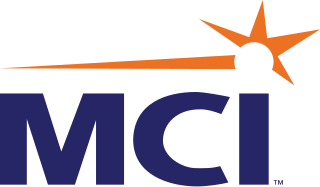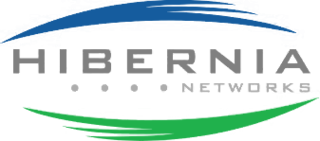Related Research Articles

Enron Corporation was an American energy, commodities, and services company based in Houston, Texas. It was founded by Kenneth Lay in 1985 as a merger between Lay's Houston Natural Gas and InterNorth, both relatively small regional companies at the time of the merger. Before its bankruptcy on December 2, 2001, Enron employed approximately 20,600 staff and was a major electricity, natural gas, communications, and pulp and paper company, with claimed revenues of nearly $101 billion during 2000. Fortune named Enron "America's Most Innovative Company" for six consecutive years.

Nortel Networks Corporation (Nortel), formerly Northern Telecom Limited, was a Canadian multinational telecommunications and data networking equipment manufacturer headquartered in Ottawa, Ontario, Canada. It was founded in Montreal, Quebec in 1895 as the Northern Electric and Manufacturing Company, or simply Northern Electric. Until an antitrust settlement in 1949, Northern Electric was owned mostly by Bell Canada and the Western Electric Company of the Bell System, producing large volumes of telecommunications equipment based on licensed Western Electric designs.
Global Crossing Limited, was a telecommunications company that provided computer networking services and operated a tier 1 carrier. It maintained a large backbone network and offered peering, virtual private networks, leased lines, audio and video conferencing, long-distance telephone, managed services, dialup, colocation centres and VoIP. Its customer base ranged from individuals to large enterprises and other carriers, with emphasis on higher-margin layered services such as managed services and VoIP with leased lines. Its core network delivered services to more than 700 cities in more than 70 countries.

MCI Communications Corporation was a telecommunications company headquartered in Washington, D.C. that was at one point the second-largest long-distance provider in the United States.

Dynegy Inc. is an electric company based in Houston, Texas. It owns and operates a number of power stations in the U.S., all of which are powered by fossil fuels. Dynegy was acquired by Vistra Corp on April 9, 2018. The company is located at 601 Travis Street in Downtown Houston. The company was founded in 1984 as Natural Gas Clearinghouse. It was originally an energy brokerage, buying and selling natural gas supplies. It changed its name to NGC Corporation in 1995 after entering the electrical power generation business.

Allstream Inc. is a business communications provider based in Mississauga, Ontario, Canada, that provides Internet Protocol (IP) connectivity, managed IP services, unified communications and voice services to its customers in the United States and Canada.

PSINet, formerly Performance Systems International, was an American internet service provider based in Northern Virginia. As one of the first commercial Internet service providers (ISPs), it was involved in the commercialization of the Internet until the company's bankruptcy in 2001 during the dot-com bubble and acquisition by Cogent Communications in 2002.

Hibernia Networks, alternately known as Hibernia Atlantic, was a privately held, US-owned provider of telecommunication services. It operated global network routes on self-healing rings in North America, Europe and Asia including submarine communications cable systems in the North Atlantic Ocean which connected Canada, the United States, the Republic of Ireland, the United Kingdom and mainland Europe. Hibernia managed cable landing stations in Dublin, Republic of Ireland; Coleraine, Northern Ireland; Southport, England; Halifax, Canada; Lynn, Massachusetts, United States.
Ciena Corporation is an American networking systems and software company based in Hanover, Maryland. The company has been described by The Baltimore Sun as the "world's biggest player in optical connectivity". The company reported revenues of $4 billion and more than 8,500 employees, as of October 2024. Gary Smith serves as president and chief executive officer (CEO).

Northwest Fiber, LLC, doing business as Ziply Fiber, is an American telecommunications company based in Kirkland, Washington. Owned by WaveDivision Capital, the company operates fiber-optic broadband services in the Pacific Northwest, serving 1.3 million residential and business customers in Washington, Oregon, Idaho and Montana. It has major offices in Everett, Washington, Beaverton, Oregon, and Hayden, Idaho.

Frontier Communications Parent, Inc. is an American telecommunications company. Known as Citizens Utilities Company until 2000, Citizens Communications Company until 2008, and Frontier Communications Corporation until 2020, as a communications provider with a fiber-optic network and cloud-based services, Frontier offers broadband internet, digital television, and computer technical support to residential and business customers in 25 states. In some areas it also offers home phone services.

AboveNet was a provider of high bandwidth telecommunication circuits primarily for large corporate enterprises and communications carriers in 17 markets in the United States and 4 markets in Europe. Its private optical network delivered key network and IP services and was used in financial and legal services, media, health care, retail, and government.
Electric Lightwave, was originally formed in 1988, by John Warta, John Rivenburgh, Earl Kamsky and Richard Furnival. The company was formed to compete with US West and GTE in the Pacific Northwest. Portland General Electric was an initial investor, then Citizens Utilities became the largest investor in 1990. ELI became the first company to compete locally in Oregon, Washington, Idaho, Utah, and one of the first in California and Arizona.

Qwest Communications International, Inc. was a United States telecommunications carrier. Qwest provided local service in 14 western and midwestern U.S. states: Arizona, Colorado, Idaho, Iowa, Minnesota, Montana, Nebraska, New Mexico, North Dakota, Oregon, South Dakota, Texas, Utah, Washington, and Wyoming.
Michael Neuman is a Canadian-born executive who has managed telecommunications and broadcast television companies in Canada, the United Kingdom, and the United States. He is the founder and CEO of WorldLinx Telecommunications Inc., and founder of MediaLinx which formed the ISP Sympatico. He was CEO of satellite TV provider Bell ExpressVu and acted as President of Bell Mobility where he joined forces with Sir Richard Branson to launch Virgin Mobile Canada. He was President of Fortune 300 company EchoStar, which operates DISH Network in the U.S., and CEO of British telecom outfit iaxis prior to its sale to Dynegy Inc., in 2000.
Lightower Fiber Networks, founded in 2006, was a provider of telecommunications and IT services. It offered cloud computing, colocation hosting, and connectivity.
Timeline of major events for Nortel.
Viatel Inc., founded in the United States in 1991, was a Nasdaq-quoted technology company which operated fiber optic networks in several countries, including in the United Kingdom during the mid-1990s. Viatel Technology Group, a Dublin-based technology company focused primarily on the Irish market, was founded from some of the elements of Viatel Inc. following acquisition by Digiweb in 2013.

Zayo Group Holdings, Inc., or Zayo Group, is a privately held company headquartered in Boulder, Colorado, U.S. with European headquarters in London, England. The company provides communications infrastructure services, including fiber and bandwidth connectivity, colocation and cloud infrastructure. Zayo's primary customer segments include wireless carriers, national carriers, ISPs, enterprises and government agencies. Zayo Group was built largely through acquisitions; it took over thirty companies from 2007 to 2014, including AboveNet and 360networks. The company completed an initial public offering of stock raising $600 million in 2014. In 2020, Zayo Group was taken private by global investment firms EQT AB and Digital Colony Partners in a deal valued at $14.3 billion.
Birch Communications was an American provider of IP-based communications, network broadband, cloud computing, and information technology services to small, mid-sized, enterprise and wholesale business customers in the United States, Canada and Puerto Rico. It was acquired by Fusion Connect in 2018 and integrated into the company. Founded in 1996 in the wake of the 1996 Telecommunications Act, several years later the company began acquiring other telecom companies in an effort to increase its network size and service offerings. Birch Communications raised $77.5 million in funding in 2011, and $110 million in funding in 2012 after it financed a new $90 million facility.
References
- ↑ "360 Networks Form F-1". U.S. Securities and Exchange Commission. April 18, 2000.
- 1 2 3 Mehta, Stephanie N. (November 13, 2000). "Still Afloat In An Ocean Of Doubt". Fortune .
- ↑ KENNEDY, PETER; SURTEES, LAWRENCE (April 21, 2000). "360networks' IPO a success". The Globe and Mail .
- ↑ Carlton, Jim (November 13, 2000). "360networks Raises $1.45 Billion In Its Offering, but Disappoints" . The Wall Street Journal .
- ↑ "360networks in tepid debut". CNN . April 20, 2000.
- ↑ "360networks in Expansion". The New York Times . Dow Jones & Company. May 16, 2000.
- ↑ "360networks Acquires Co-Location Facilities" . The Wall Street Journal . May 16, 2000.
- ↑ "360networks buys fibre-optic infrastructure from Call-Net". The Globe and Mail . August 28, 2000.
- ↑ "360networks lands Japan license". American City Business Journals . May 30, 2001.
- ↑ Lewis, Mark (June 18, 2001). "Telecom Debt Bombs Exploding". Forbes .
- ↑ "360networks files for bankruptcy protection". The Globe and Mail . June 28, 2001.
- ↑ "360Networks Seeks Bankruptcy Protection in U.S., Canada" . Los Angeles Times . Reuters. June 29, 2001.
- ↑ Solomon, Deborah; Scannell, Kara; Heinzl, Mark (October 2, 2002). "360networks to Announce Backing From W.L. Ross" . The Wall Street Journal .
- ↑ "360networks emerges from bankruptcy". American City Business Journals . November 12, 2002.
- ↑ WEBER, TERRY (November 18, 2002). "360networks to buy Group Telecom". The Globe and Mail .
- ↑ "Dynegy Completes Sale of U.S. Communications Business To 360networks" (Press release). Business Wire. May 15, 2003.
- ↑ "Qwest buys Touch America, 360 Networks assets". American City Business Journals . November 17, 2003.
- ↑ "360networks buys assets from Touch America". American City Business Journals . January 13, 2004.
- ↑ "Bell buys 360networks' Canadian assets". CBC News (Press release). May 26, 2004.
- ↑ KENNEDY, PETER; EBNER, DAVE (May 27, 2004). "Bell buys 360networks assets". The Globe and Mail .
- ↑ Meisner, Jeff (July 17, 2005). "Even without Maffei, 360 hungrily hunts deals". American City Business Journals .
- ↑ "ZAYO ACQUIRES 360NETWORKS" (Press release). Zayo Group. December 2, 2011.
- ↑ Avery, Greg (December 2, 2011). "Zayo Group completes 360networks buy". American City Business Journals .